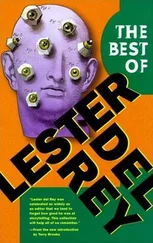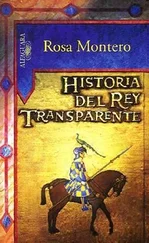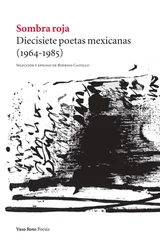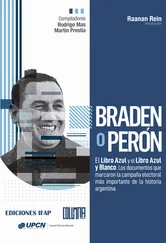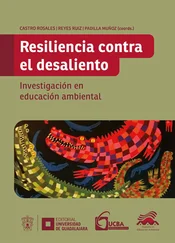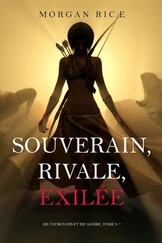Rodrigo Rey Rosa
Severina
Chris Andrews. Introduction
Readers who look to Central American literature for baroque exuberance, perhaps with the prestigious precedent of Miguel Angel Asturias in mind, are likely to be surprised by the Guatemalan Rodrigo Rey Rosa. His fiction is the opposite of lush: generally spare in style, restrained in its exploration of the characters’ inner worlds, and elliptical in structure. Moreover it tends to be somber in tone. These descriptive formulas might, in North America, suggest that Rey Rosa belongs to the numerous offspring of Hemingway, but that would be a somewhat misleading impression, for he is not a writer who begins from a secure (if bleak) sense of how things really are. In the fiction of Rey Rosa the lineaments of the real cannot be taken for granted. It is true that his settings have gradually become more particular and identifiable, and that the fantastic and speculative elements that marked his first three books— The Beggar’s Knife, Dust on Her Tongue, and The Pelcari Project, all translated into English by Paul Bowles — have since receded. Nevertheless, dream, fantasy, and hallucination still threaten the stability of the worlds in which his characters live. In this regard, Rey Rosa remains fruitfully in debt to the writer whose work revealed his vocation: Jorge Luis Borges.
The difficulty of distinguishing dreams from experience of the world we share is written large in Lo que soño Sebastián (“What Sebastian Dreamed,” 1994). The title poses a question to which the novel replies in a deferred and partial manner: Did the protagonist dream that he was forced to fire a shotgun or was he effectively framed for the murder of his neighbor? Is he the victim of a nightmare induced by fish eggs gone bad or of a home invasion? Quandaries of this nature are pivotal in a number of Rey Rosa’s stories and novels. Rather than blurring the action, they make it tremble like a clear reflection on rippled water.
Rey Rosa’s fiction departs from a narrowly conceived realism in another way as well: it sometimes gives onto a mythical or allegorical hinterland, delicately intimated, never insisted upon. Sometimes the characters’ names suggest that they stand for something beyond their particularities, as in “Gracia,” a story from the collection Otro zoo (“Another Zoo,” 2007), whose eponymous heroine prays to God that she may be taken as a sacrificial victim instead of the lamb she has been raising, which her entrepreneurial brother has sold to a Muslim neighbor for the feast of Eid ul-Kbir. “Gracia” (the noun gracia means grace but also mercy or pardon ) patently alludes to Abraham’s sacrifice, but is not a simple inversion of the scriptural episode, which, rather than serving as a key, gives Rey Rosa’s vividly realistic fiction, set in contemporary Guatemala, an enigmatic resonance. In The African Shore (Yale University Press, 2013), set in Tangier, the revelation of the protagonist’s name is strategically delayed until the moment he is about to lose it, along with his passport and his life, to a mysterious assailant. The name revealed — Angel Tejedor — is common enough yet, in context, irresistibly significant, for tejedor means weaver, and this is precisely when the drifting protagonist overcomes his passivity and, in vanquishing his Doppelgänger, recovers a minimal capacity to weave the threads of his fate.
Having lamented the range and quality of books for sale in Guatemala City, the narrator of Severina adds: “There are far more serious problems here, but I don’t want to talk about all that now.” Taking a break from those serious problems, Severina is an exception among the recent novels of Rodrigo Rey Rosa in that it only glances momentarily at Guatemala’s pervasive politico-criminal violence, which is confronted in a particularly direct and courageous way in El material humano (“The Human Material,” 2009). Nevertheless, the novel shares the characteristics just outlined: the instability or inscrutability of the real and a mythical or allegorical hinterland. The narrator is an eclectic reader, an aspiring but stalled writer, and part-owner of a bookstore. Into his stagnant life comes a beautiful thief: Ana Severina Bruguera Blanco. She steals from his store and manages to foil the alarm system. Although eventually receptive to his advances, she remains fundamentally elusive and inscrutable. Where, for example, does she come from? Sometimes the narrator can hear an Argentine or Uruguayan accent when she speaks, but at the pensión where she is staying she gives her nationality as Honduran. What is the nature of her relationship with the old gentleman, Otto Blanco, who shares her room at the Pensión Carlos? Is he her father, as she says at first? Or her husband, as the narrator’s friend and fellow bookseller Ahmed al Fahsi asserts? Or her grandfather, as Señor Blanco himself explains? Is she a petty thief or a kleptomaniac? Or does her way of life reflect a radical existential choice?
These questions haunt the narrator, but very soon it is too late for the answers to make a difference in how he will act: he is deliriously in love. Increasingly the reader is led to envisage a possibility that the narrator himself cannot quite bring himself to face, perhaps because it seems outdated and unenlightened: “The incoherent images that tumbled through my mind left me thinking that the idea of love that comes down to us from the Romantics, who associated it with death and sometimes with the devil, was too gloomy to be credible, much less desirable, these days.” This characterization of the romantic idea of love seems to be influenced by one of the books that Severina steals: Mario Praz’s La carne, la morte e il diavolo (published in English as The Romantic Agony ), which contains a chapter on the Fatal Woman titled “La Belle Dame Sans Merci.”
As to the novel’s mythical hinterland, it is suggested by the speech in which Otto Blanco presents himself and Ana Severina as members of a maligned tribe, the gypsies of the book trade, so to speak, exploiting its ebbs and flows “beyond literary good and evil.” Toward the end of the novel Ana Severina remembers her grandfather saying that one of their remote ancestors invented dice. “A man from Lydia. It’s in Herodotus. His people emigrated to the north of Italy because of a famine that lasted for many years.” The reference is to The Histories, volume 1, section 94, in which Herodotus explains that during a “grievous dearth” (as G. S. Macaulay translates the passage) the Lydians discovered “the ways of playing with the dice and the knucklebones and the ball. . as a resource against the famine. . — on one of the days they would play games all the time in order that they might not feel the want of food, and on the next, they ceased from their games and had food.” But since the famine persisted, half the Lydian people were sent abroad and finally settled in “the land of the Ombricans,” that is, in Umbria, where Ana Severina says she spent her childhood.
Señor Blanco does not reveal exactly how his tribe has operated through the ages, but Ana Severina has a bibliophile’s eye for the precious collectible (she steals a first edition of Émile Laoust’s anthology of Berber tales—“a treasure”—from Ahmed al Fahsi) and a true reader’s eye for the obscure or forgotten gem. “She would come back with new books — often titles I’d never heard of — and there was almost always an extraordinary discovery among them,” says the narrator, who lists her spoils. It is tempting to presume that the lists encrypt a secret, and the narrator himself gives way to this temptation at one point: “I kept going over the books that she had taken from me and trying to imagine the complete list of every title she had ever stolen. It was as if I thought this would help solve the mystery of a life that seemed bizarre and fantastic to me.” But there are two other ways to read the lists, which will, I think, prove more rewarding in the end. First, as multilingual collage-poems, alluding occasionally to the novel’s themes: Severina, too, is Une ténébreuse affaire (“A Shadowy Affair,” Balzac) and the origins of its female protagonist are mysterious, as in La española inglesa (“The Spanish-English Woman,” Cervantes). Second, the lists can be read in a simpler and more outward-looking way as homage paid to lesser known works, worth hunting out in second-hand bookstores. As Otto Blanco says: “There are wars between different kinds or genres of books. . And, as in real wars, the best don’t always win.”
Читать дальше



